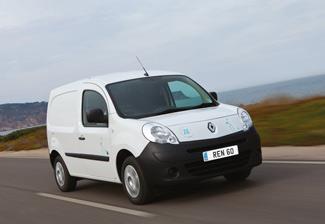
The EU Transport Council has welcomed plans to dramatically extend the number of alternative fuel stations around Europe.
In a debate on 11 March attended by UK secretary of state for transport, Patrick McLoughlin, ministers broadly welcomed the initiative.
The initiative, which was put forward by the European Commission in January, involves an ambitious plan to ensure the build-up of alternative fuel stations including those for liquefied and compressed natural gas (LNG/CNG) and electric vehicle charging points across Europe.
Under the EC proposal, just under 800,000 publicly accessible electric vehicle recharging points, all using a common Type 2 plug, would need to be established before 2020 - including over 120,000 in the UK.
EC figures show there are currently just 11,749 such points across the EU, including 703 in the UK.
The proposal also calls for LNG refuelling stations to be installed every 400km along the roads of the Trans European Core Network, and for CNG refuelling points to be available Europe-wide at maximum distances of 150km by 2020.
Despite broadly welcoming the plan, ministers at the meeting highlighted the need for flexibility on implementation across various member states and also voiced a number of concerns about the proposed target numbers, the financing of the scheme and the deadlines for implementation.
The council’s preparatory bodies will continue to evaluate the EC’s proposal, adoption of which requires the ultimate approval of both the European Council and the European Parliament.
Concerns remain
Commenting on the meeting, transport minister Norman Baker told Motortransport.co.uk he was “happy with the trajectory for the uptake of low emission vehicles and the provision of infrastructure in the UK” but added that he had concerns about the targets outlined by the EC.
“We want almost every new vehicle sold in the UK by 2040 to be effectively zero emission and are making good progress towards this, with vehicle sales increasing steadily,” he said. “However, we do not believe that rigid interim targets for the uptake of ultra-low-emission vehicles and installation of infrastructure are the right approach.”
A DfT spokesman added that while it welcomed the EC’s strong position on this issue and supported efforts to harmonise technical standards for alternative fuels across the EU, it was “not convinced that setting targets for the deployment of technology-specific infrastructure is the most effective way of building consumer confidence in new technology”.













